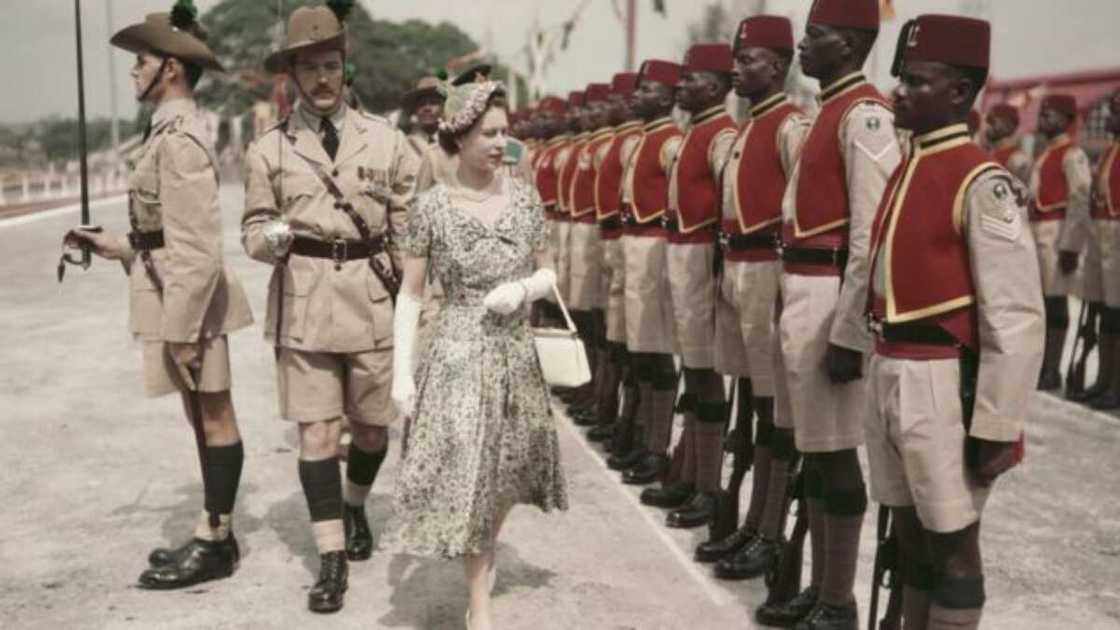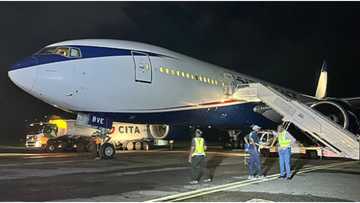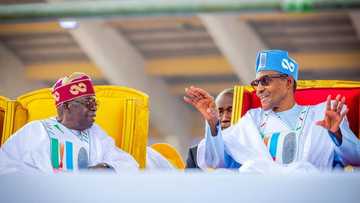List of African Countries That Got Independence Under Queen Elizabeth’s Reign
- Queen Elizabeth's reign as monarch of Great Britain is filled with a lot of long-lasting legacies
- During her 70 years reign as the sole ruler of Northern Ireland, Scotland, England, and Wales, she also had close ties with the African continent
- The Queen was responsible for handing over sovereignty to ten African nations, including Nigeria, South Africa, Ghana, Kenya and others
As the world mourns the death of Queen Elizabeth II, the longest-serving monarch in modern history, her legacy in the emancipation of nations across the world cannot be overemphasized.
In her reign as the sovereign ruler of the United Kingdom, the queen handed sovereignty to ten African countries across the sub-regions of the continent.

Source: UGC
In this piece, Legit.ng will go down memory lane to list these African countries and the year they earned their independence as sovereign nations.
The Gambia
The Gambian is one of the prominent West African nations whose antecedent to sovereignty cannot be overlooked in history books.
PAY ATTENTION: Join Legit.ng Telegram channel! Never miss important updates!
According to the World Bank Development indicator in 2020, The Gambia has a population of 2.417 million.
The West African nation was also part of the British colony before it gained independence on 18 February 1965. Its capital is in Banjul and its first president was Sir Dawda Kairaba Jawara.
Ghana
Ghana, formerly the Gold Coast is a West African country that was also a British colony.
The country is blessed with a lot of natural resources, especially gold.
It has a population of over 31.07 million people and shares a border with anglophone nations like the Ivory Coast, Burkina Faso, and the Republic of Togo.
On 6 March 1957, Ghana gained its independence and on 1 July 1960, it became a republic with its first leader being Kwame Nkrumah.
Kenya
Kenya is an East African nation with over 54 million people as a population.
It is an African country with a deep-rooted cultural and traditional history that has been in existence for centuries.
As a British colony, Kenya got its independence as a sovereign state and on 12 December 1964, the Republic of Kenya was proclaimed, and Jomo Kenyatta became Kenya's first president.
Malawi
Also, in the East African region like Kenya, the Republic of Malawi is a small country with a population of over 20 million people.
It shares a border with Zambia to the west, Tanzania to the north and northeast, and Mozambique to the east, south, and southwest.
As a British colony, Malawi got its independence on 6 July 1964, with Hastings Banda as its first President.
Mauritius
Mauritius is an Indian Ocean island nation with a small population of just over 2 million people.
Its capital is Port Louis and under the British colony, it got its independence on 12 March 1968 with Sir Seewoosagur Ramgoolam becoming the first prime minister of an independent Mauritius.
Nigeria
Nigeria, often referred to as the giant of Africa or better still, the trigger of Africa because of where it is spotted on the African map.
The Federal Republic of Nigeria has a population of over 250 million people, making it the most populated black nation in the world.
In the early 1800s, Nigeria became a British colony but got its independence on 1 October, 1960 and became a republic on 1 October, 1963.
It is the largest economy in Africa and its seat of power is in the Federal Capital Territory (FCT)-Abuja.
Rhodesia (Zimbabwe)
Zimbabwe, formerly Rhodesia is located in the southern part of Africa. It has a population density of over 15 million people.
It was also among the ten African nations under the British colony.
Its capital is the city of Harare and on 11 November 1965, a unilateral declaration of independence was signed in 1970, Zimbabwe became a republic with its first president being Canaan Banana and Robert Mugabe being the first prime minister.
Sierra Leone
Sierra Leone is a small West African country with less than 10 million people as a population. Its capital city is Freetown and it was also a one-time British colony.
On 27 April 1961, Sierra Leone became a sovereign state and Sir Milton Margai became its first-ever leader.
South Africa
South Africa is another country under the British colony with a population density of over 60 million people.
Just like Nigeria, Kenya, and Ghana, South Africa is another country with a deep-rooted cultural and traditional history.
Its capitals are Cape Town, Pretoria, and Bloemfontein, respectively with all serving different purposes.
The country's independent status can be traced back to the early 90s but it held its first universal elections in 1994, which saw the emergence of Nelson Mandela as president.
Uganda
Uganda is an East African nation whose capital city is Kampala.
Also a British colony, Uganda gained independence on 9 October 1962 with Queen Elizabeth II as head of state and Queen of Uganda.
In October 1963, Uganda became a republic but maintained its membership in the Commonwealth of Nations.
Source: Legit.ng






